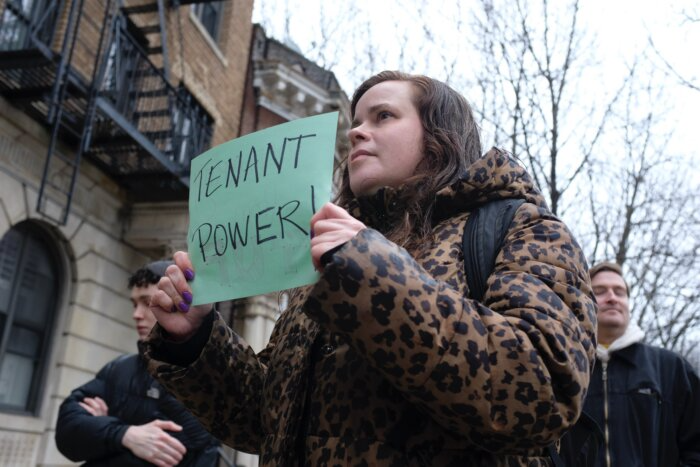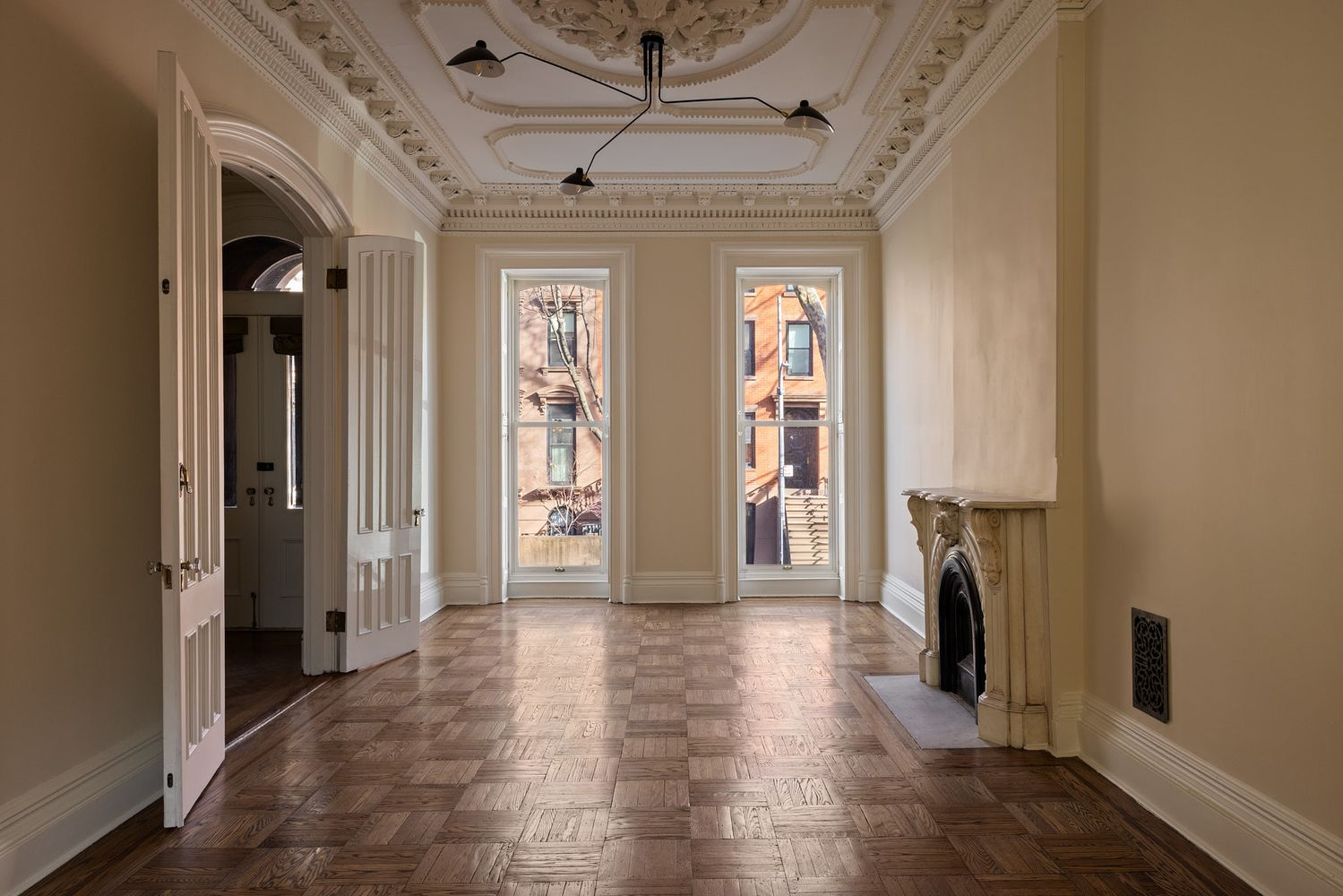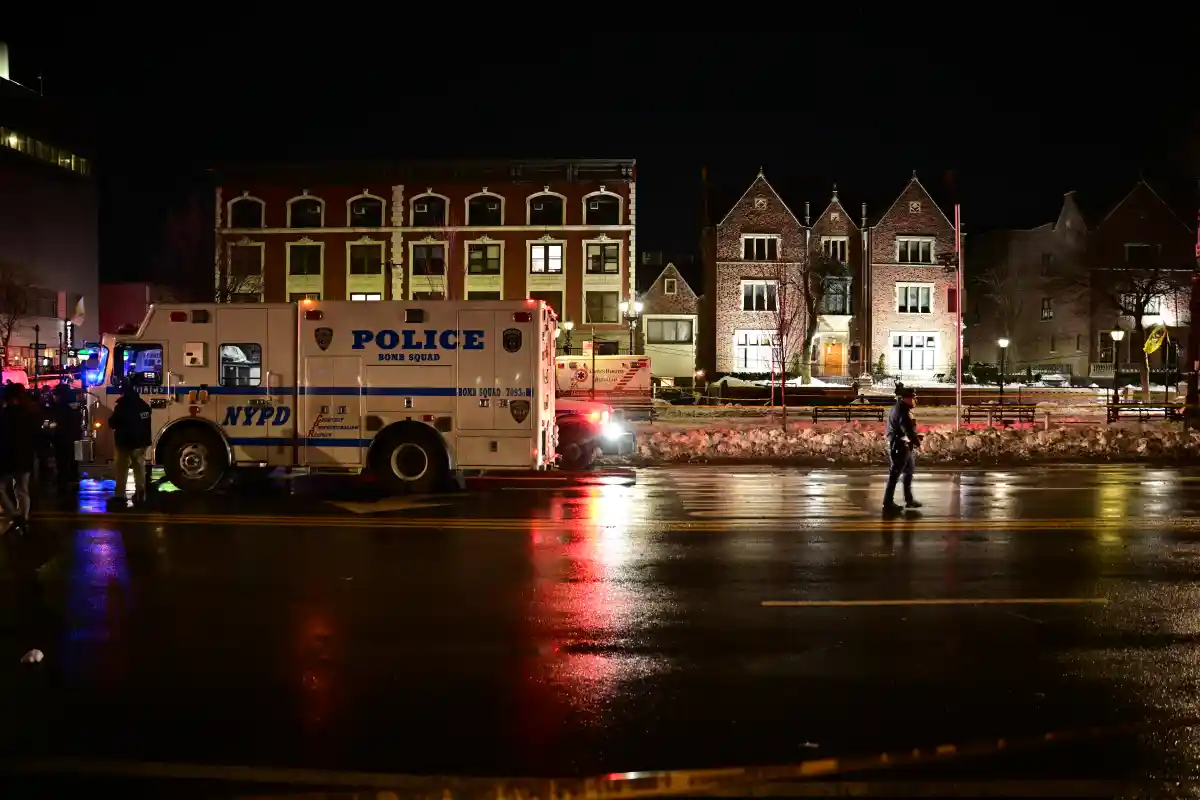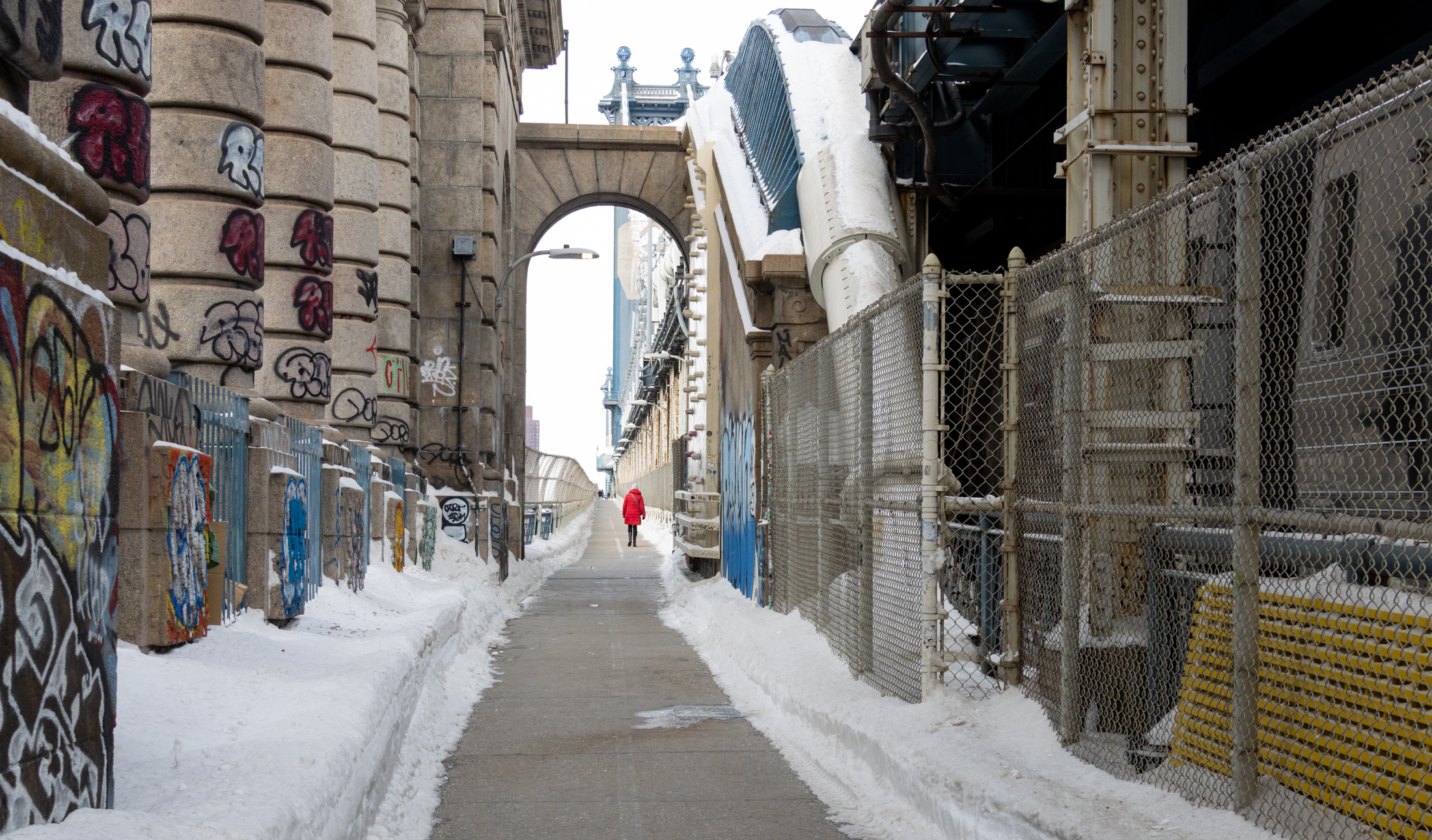Public Rent History Will Help Tenants Fight Overcharges
Landlords of rent-stabilized units must now post signs stating the building contains regulated apartments and where to find rent history details.

A tenant rally with Council Member Sandy Nurse, center. Photo via Sandy Nurse
by Gabriele Holtermann, Brooklyn Paper
Landlords who own buildings with one or more rent-stabilized units are now required to post signs informing tenants that the building contains rent-stabilized apartments. The move is aimed at empowering tenants to fight illegal rent hikes, demand better living conditions, and restore illegally deregulated units.
The Rent Transparency Act, also known as Intro 1037, was introduced by Council Member Sandy Nurse, and passed the City Council with a supermajority of 49 votes on May 28.
The law, which takes effect in 2026, also requires landlords of rent-stabilized units to submit an annual filing to the New York State Division of Housing and Community Renewal (DHCR) and provide each tenant with a copy, ensuring tenants are aware of the status of their units. Landlords who fail to file may face penalties.
They must also post signs in English and Spanish in common areas of the building. The signs will inform tenants which authorities or organizations to contact — such as the DHCR and its Office of Rent Administration — to check the status of their unit and its rent history.
Nurse, who represents Cypress Hills, Bushwick, City Line, Ocean Hill, Brownsville, and East New York, told Brooklyn Paper that when she moved into a rent-stabilized building in 2021, she wasn’t informed that her unit was subject to the Rent Stabilization Law of 1969 — and her landlord attempted to overcharge her by 20 percent.
“The only way I found out eventually [was] by looking it up and finding that, in fact, it was rent stabilized, but also that the landlord hadn’t registered the unit,” Nurse said, stressing that as a City Council member focused on housing justice issues, she was equipped with the tools to dig deeper into the rent history of her apartment. “Imagine you don’t know any of that, so you’re just getting overcharged. And this is a simple tool that once it’s implemented [and] in effect, tenants will at least be able to check.”
If tenants discover they live in a rent-stabilized apartment and were overcharged, they can contact their elected officials, who can connect them with organizations that help navigate the court system to challenge the overcharge.
“The reason we’re doing this is because so many people just don’t know that their unit is rent stabilized, and that has led to harassment, illegal rent surcharges, overcharging — and eventually that can lead to eviction,” Nurse said.

Nurse said some residents have already told her that because of her initiative they learned their apartment is rent stabilized.
“Information is power,” the pol said. “Even if a broker is taking you to the building, they’re not going to tell you it’s rent stabilized. The landlord has no interest in telling you it’s rent stabilized.”
The Brooklyn Council member also introduced another housing bill, Intro 1294-2025, with Council Member Chi Ossé and in partnership with Brooklyn Borough President Antonio Reynoso. If passed, the law would require the Department of Consumer and Worker Protection to create a website with publicly available information on all individuals convicted of larceny by deed theft in New York City.
According to the New York State Attorney General’s office, the New York City Sheriff’s Office received nearly 3,500 deed theft complaints between 2014 and 2023. More than 1,500 of those were in Brooklyn, many in rapidly gentrifying neighborhoods like Bedford Stuyvesant and Bushwick, where property values are skyrocketing. Many victims are Black and brown homeowners, stripped of the generational wealth they spent their lives building.
“We hope this is also a source of information and education for people who might be getting a door knock or solicitation,” Nurse said. “We’re really excited to expose these criminals because that’s what they are. They’re thieves. They’re stealing generational wealth from people, and specifically Black elders.”
Editor’s note: A version of this story originally ran in Brooklyn Paper. Click here to see the original story.
Related Stories
- Rent Guidelines Board Trims Possible Rent Hike in Vote Redo
- Sunset Park Tenants, Pols Rally for Rent Freeze After Price Hikes
- Stabilized Apartment Rents Jump to 2.75 Percent and 5.25 Percent Amid Protests
Email tips@brownstoner.com with further comments, questions or tips. Follow Brownstoner on X and Instagram, and like us on Facebook.





What's Your Take? Leave a Comment